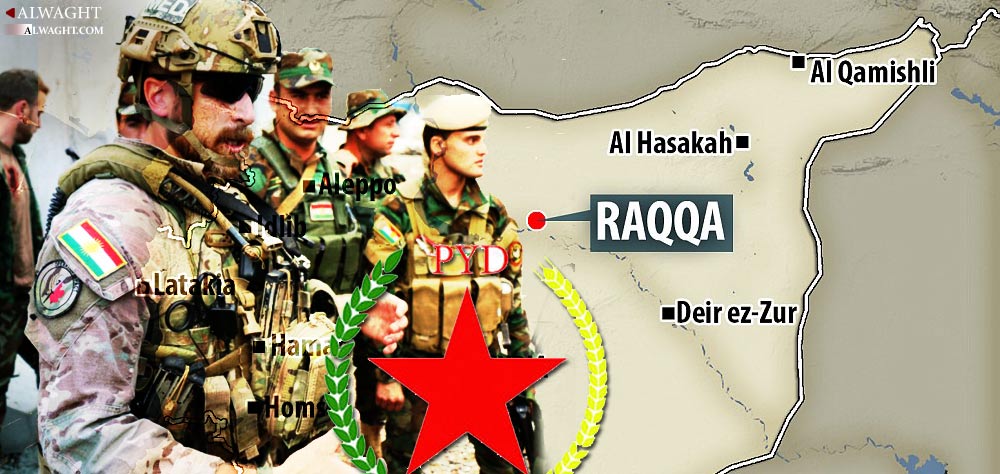Alwaght- The Kurdish Democratic Union Party of Syria (PYD) has expanded its power during the years of the country’s 6-years conflict, turning it into a key actor in Syria’s northern battlefields. Strong position in northern regions called considerable Russian and American attention to this Kurdish militia. The upcoming major Raqqa liberation battle is likely to be another fight in which the Syrian Kurds are expected to have strong presence.
The PYD's combative capabilities make the militia have influential presence in the battleground. These, in turn, make it significant, and of course indispensable, for the regional and international actors to show desire for work with PYD. Still, there is a dearly complicated equation ahead of PYD militiamen to join of Raqqa operation, as on the one hand the new American administration is not that much interested in backing the militant groups in Syria and on the other hand Turkey is tough in its opposition to Kurds participation in the operation to liberate ISIS terrorist group's de facto capital in Syria, Raqqa.
Regarding the situation three scenarios is possible for PYD participation in Raqqa offensive:
First scenario foresees close cooperation between Washington and PYD that will allow Kurdish militia to engage actively in Raqqa battle.
The second scenario presupposes PYD’s decline to take part in the northern city battle, predominantly because Washington will quit its pro-Kurdish stance. The scenario does not look much likely since the Kurdish battling potentials will be decisive in their involvement in Raqqa assault. In addition, although the US does not consider the Syrian Kurds as its strategic ally, but that does not mean Washington will not use them in the upcoming fight, at least tactically.
The third expected scenario is that joint work will bring Washington, Ankara, and PYD in a common orbit. Of course, managing such a scenario will not be easy for the Americans, but it looks that the American supports for Kurds will go on, even despite Ankara’s opposition. Still, odds are that the new American leadership reviews the tactics set up by the previous administration in dealing with the PYD.
The last scenario is the likeliest, as it appears that Turkey has begun to face the fact about what is going on in northern Syria. But Ankara’s opposition to the Kurds may seek other goals. Though any relative Kurdish autonomy in Syria’s north runs counter to the Turkish national interests, Ankara leaders should concede to the truth that the Kurds of Syria are their neighbors willy nilly, and so they cannot escape their geographical location realities.
Ankara’s demands in relation to the Syrian Kurds are far from compromising with what is happening on the ground. And by raising the idea of establishing safe zones in northern Syria, Ankara wants to separate Syria’s southeast and north. This is just against Turkey’s announced policies.
The relation of Washington, Ankara, and PYD is currently a multivariable equation. Ankara cannot shuffle the present order in northern Syria, so it unavoidably has to admit the fact. Therefore, the last scenario, if takes place, is not in best Turkish interest, though the US may offer alternative privileges to Turkey.



























